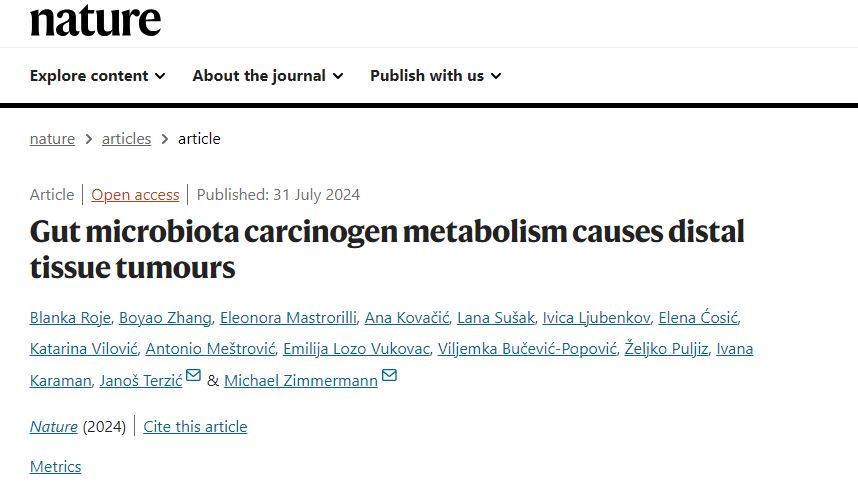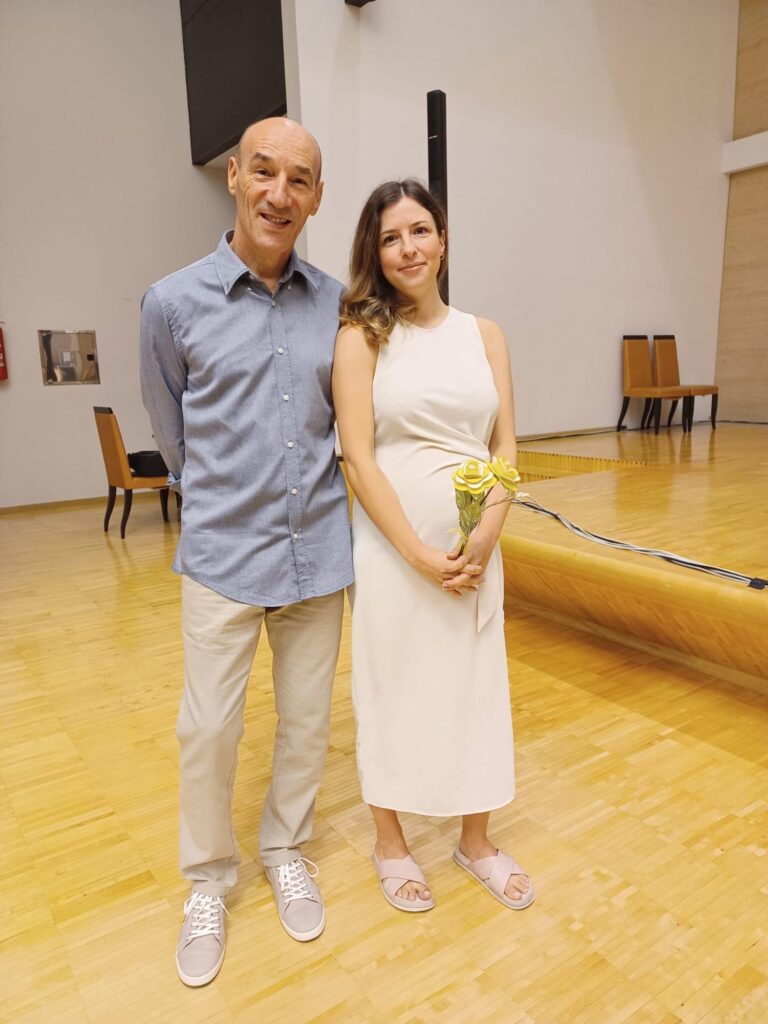Researchers from University of Split School of Medicine published a paper in Nature

The latest issue of Nature includes an article authored by researchers from the University of Split School of Medicine, in collaboration with clinicians from the Split University Hospital and colleagues from EMBL. One of the two corresponding authors is Prof. Janoš Terzić, while joint-first author is Dr Blanka Roje, former HRZZ-funded doctoral student and currently senior research assistant at Split School of Medicine.
This is a major achievement for Croatian science, if we consider the fact that the total number of papers published in Nature by authors affiliated with Croatian institutions is slightly over 70, while first or corresponding authorship was attributed to Croatian scientists on less than 10 of these.
The paper describes new insights into bacteria-induced carcinogenesis, which is also the topic of the current HRZZ-funded research project led by Prof Terzić “Role of microbiota in bladder cancer development” (IP-2020-02-8921).
Increasing evidence suggests that microorganisms that live in and on the human body (microbiota) play an important role in cancer development and progression. Bladder cancer is the tenth most common cancer worldwide, whose major risk factors are environmental and occupational exposure to carcinogens, the most well described carcinogens being nitrosamine compounds BBN (N-butyl-N-(4-hydroxybutyl)-nitrosamine) and BCPN (N-butyl-N-(3-carboxypropyl)nitrosamine), both found in tobacco smoke. In the study, the authors investigated how gut microbiota contributes to BBN-induced bladder cancer development.
The authors demonstrated that certain groups of bacteria present in gut microbiota convert BBN into highly carcinogenic BCPN. By reducing the amount of bacteria in the gut microbiota through antibiotic treatment, the authors managed to substantially reduce the development and severity of nitrosamine-induced urinary bladder cancer in mice. Afterwards, they explored whether bacteria in the human gut can make this same BBN-to-BCPN conversion, which proved correct, but with substantial individual differences. This difference in interindividual microbiota could explain why some people, despite being exposed to potential carcinogens, do not develop cancers while others do.
These findings could open avenues to target the microbiome for improved predisposition risk assessment and prevention of cancer.
The full article is available in open access at the following link, while additional information is available in EMBL’s press release. We would once again like to congratulate to Prof. Terzić and Dr Roje and the entire team on this major accomplishment.


